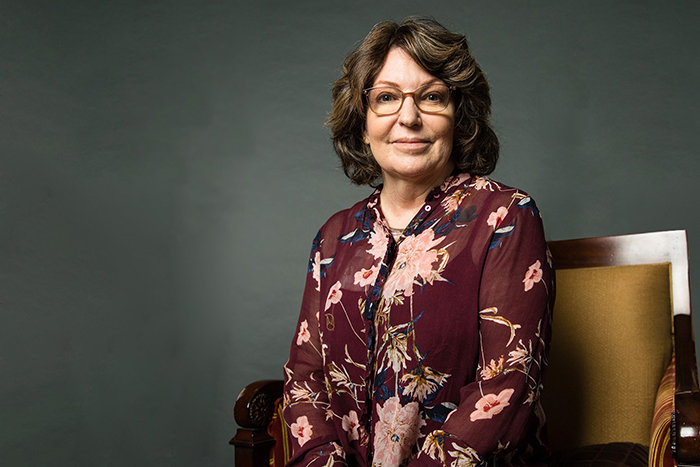It’s important to emphasize that a clinical trial doesn’t replace standard treatment. “The patient should receive what is optimum plus what is involved in the trial,” says Bilen. They continue to receive the best standard of care, plus an investigational therapy. Sometimes, though, that patient already has gone through first-, second-, or even third-line treatment, with no good option left on the table.
“If this is the case,” says Bilen, “a clinical trial may try a novel pathway or novel drug. That is also a very important option for our patient because if there’s no good standard of care option left, bringing another option to the table is always very important for us in the field to move things forward—and at the same time, for our patient to get what is potentially promising for them.”
How Winship Selects Which Clinical Trials to Conduct
It’s easy for people with rare cancers who have exhausted their available treatment options to lose hope. But studies can encourage patients and edge the field, and patients’ prospects, forward a step at a time. For example, in a recent trial at Winship, 91% of participants with metastatic head and neck cancer – who have limited treatment options – experienced a clinical benefit, and in 54%, the cancer didn’t worsen in one year of trial treatment.
There are a number of layers in the process by which Winship decides which clinical trials to conduct. “First of all,” says Bilen, “we look at our patient population, and look at the gaps where we need a clinical trial.” He adds, “When someone comes to our clinic, we want to make sure we can offer something to them in terms of a clinical trial.”
To choose which clinical trials to offer, Bilen says individual physician-researchers review all clinical trials open in the field to make sure they select the best possible options for our patients. Then they meet in groups according to the cancer types in which they specialize to discuss those options. If the group decides to pursue one of them, scientific and regulatory committees will look at the trial to make sure it’s the best fit. After that, the trial can be activated and then patients enrolled in it.
Making Clinical Trials Even More Accessible at Winship at Emory Midtown
When Winship opens our new tower in Midtown Atlanta in spring 2023, the building will be organized in care communities according to cancer types. In addition to diagnostics and treatment, the specialists and researchers conducting clinical trials will be located within the same areas—making it even easier for patients to participate in them.
This arrangement further benefits patients because, as Bilen puts it, “Cancer care is a team sport, and a clinical trial is also a team sport.” He explains, “To make clinical trials successful, we need to have a multidisciplinary team that works together and thinks the same way about what is the best care possible for each patient. The design of the tower is going to promote this approach and make it even better and easier. Ultimately, I think our patients are going to benefit from this.”
How Many People Participate in Winship’s Clinical Trials—and Why Are They Important?
At Winship, approximately 1,000 patients enroll every year in what are called interventional trials, a type of clinical trial that tests treatments such as medications, medical devices or procedures. There are also observational studies that don’t test treatments, but involve collecting samples or questionnaires. “As a field, as a community,” says Bilen, “bringing novel and promising options to our patients is the only way we are going to cure cancer.”
Winship offers more than 300 clinical trials for virtually every cancer type.
Find a Clinical Trial at Winship





